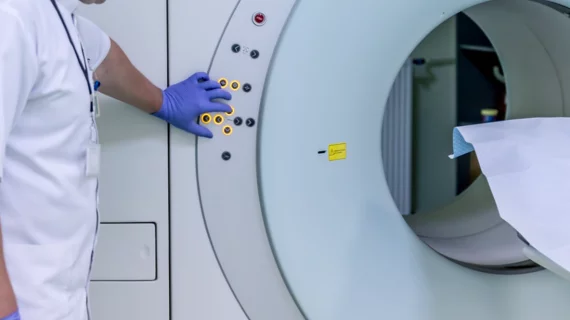Machine learning cuts cardiac MRI analysis from minutes to seconds
Leveraging machine learning to read cardiac MRIs could speed up scan analysis while retaining the same accuracy as a physician, researchers reported this month.
According to Charlotte Manisty, MD, PhD, and colleagues, writing in the Circulation: Cardiovascular Imaging, analyzing heart function on a cardiac MRI takes a trained clinician around 13 minutes. Cardiac MRIs are common and important, used regularly to inform the timing of cardiac surgery, implant cardioverter-defibrillators and help determine whether a patient should continue or stop cardiotoxic chemotherapy.
Manisty and colleagues in the U.K. trained a neural network to read nearly 600 cardiac MRIs in an effort to speed up the analysis of these precise measurements. When tested for precision next to an expert and trainee on 110 unique patients from multiple centers, the team found no significant difference in accuracy between the AI and humans.
“Cardiovascular MRI offers unparalleled image quality for assessing heart structure and function; however, current manual analysis remains basic and outdated,” Manisty said in a statement. “Automated machine learning techniques offer the potential to change this and radically improve efficiency, and we look forward to further research that could validate its superiority to human analysis.”
It’s estimated that around 150,000 cardiac MRIs are performed in the U.K. each year, she said, and based on that number, her team thinks using AI to read scans could mean saving 54 clinician-days per year at every health center in the country.
“Our dataset of patients with a range of heart diseases who received scans enabled us to demonstrate that the greatest sources of measurement error arise from human factors,” Manisty said. “This indicates that automated techniques are at least as good as humans, with the potential soon to be ‘superhuman’—transforming clinical and research measurement precision.”

